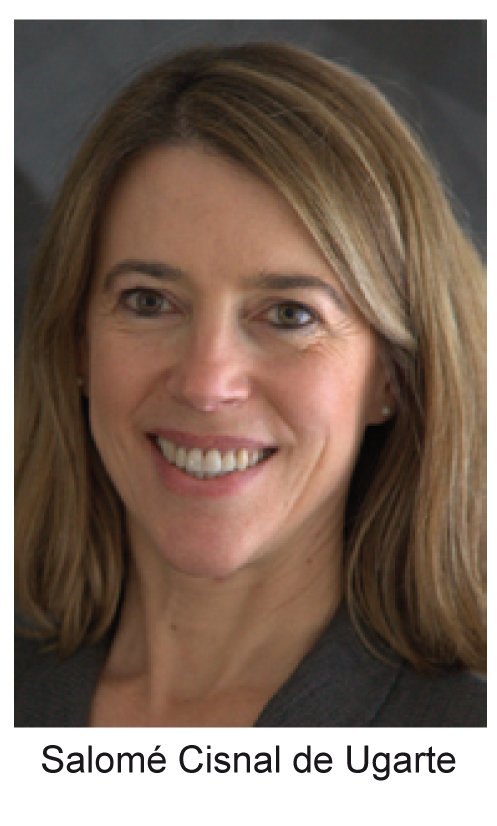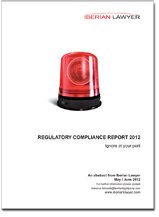The power to better resolve disputes – KPMG Forensic
 A growing use of expert witnesses in the earliest stages of a dispute is indicative of the way in which many companies are now approaching litigation and arbitration
A growing use of expert witnesses in the earliest stages of a dispute is indicative of the way in which many companies are now approaching litigation and arbitration
La creciente demanda en la contratación de expertos independientes en la etapa inicial de un conflicto es indicativo del modo en el que muchas empresas están actualmente gestionando sus conflictos, afirma Fernando Cuñado y Carlos Barceló de KPMG Forensic.
In a wide variety of sectors and industries disputes are getting more complex, increasingly multi-jurisdictional and requiring deeper analysis. This also highlights the tendency for greater subject understanding by expert witnesses, the use of expertise clauses and alternative dispute resolution (ADR), says Fernando Cuñado, a Partner in KPMG’s Madrid-based EMA Forensic Dispute Advisory Services Group.
“There is no doubt that the sector, at both the domestic and international level, is seeing a rise in tensions in relation to parties being able to meet contractual expectations and changing regulatory obligations, while trying to respond to the more difficult access to financing and funds. Because of this, it is at the forefront of many of the latest trends in the use of expert witnesses.”
Amongst others, Cuñado highlights as indicative the claims arising out of the Spanish Government’s decision last year to reduce feed-in tariffs in the solar photovoltaic (PV) and wind power sectors; changes that have led operators and sponsors to question the viability of their schemes and to seek compensation as a result.
“Many parties are arguing that they have made very significant long-term investments dependent on established income expectations and those seem to have been sensibly affected. It has meant many businesses having to seek a new financial equilibrium – new financial models that enable them to get back to where they were.”
This significant impact on the expectations within the business modelling has been subject to challenges in the domestic courts, and also to arbitration claims often based on investment treaty principles. It is in the arbitration arena that Cuñado sees the greatest demand for dedicated and higher subject matter expertise but also a trend for early case assessment, to better define the issues in dispute.
“Multi-party, cross-border disputes, inevitably demand a deep understanding of the industry and technical issues. We are seeing a greater need to bring on board ‘subject matter expertise’ and an ability to explore different issues. But we also have to be able to pull all these together, to present a ‘global’ analysis in a Master Forensic Expert Witness Report and to defend it at the hearing stage.”
KPMG is being asked to look more deeply into the financials that underlie agreements and parties’ expectations, he says. In assessing potential losses, and thus damages claims, the focus is on investor return rate assessments and other business key performance indicators – for example, the expected return from the performance of a contract.
“Legal and contractual certainty also underpin what shareholders expect out of an agreement. There can be very different perspectives around expectations – often based on the performance of specific contracts – and which may also impact on the decision making when facing a company’s acquisition,” adds Carlos Barceló, Manager with KPMG Forensic in Madrid.
Assessing company values is a particularly challenging area nowadays, he admits, and one in which objective benchmarks have to be used. “You clearly need to understand the industry in which the company operates alongside the technical financial issues, such as premium risk, capital structure, risk – free rate and further ingredients for a proper weighted average cost of capital determination and cash flow analysis, in order to reach a figure that can stand up to scrutiny.”
It is in these highly technical areas that parties are increasingly looking to utilise early case assessment to evaluate the relative strengths of the parties and options for quick resolution, adds Cuñado.
“Given the potential cost of a major claim, which can be daunting for even the largest companies, many parties now want to have an objective analysis of the values in dispute and of their chances of success, at the earliest opportunity.”
In particular, energy and natural resources sector, alongside infrastructures, is also at the forefront of the use of ‘expertise clauses’ in international arbitrations, with parties appointing a joint expert to clarify key issues in order to try and reach an agreement prior to a formal claim. The intention is to get an objective view and to see if the claim is worth pursuing, he adds. “The appointment of expert analysis up front can save a lot of time, effort and money.”












